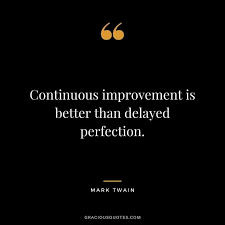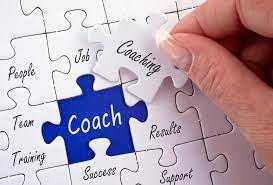The Art of Relaxing: Why It’s Important for Your Well-Being
Life can be hectic and stressful, with demands coming from all directions. In the midst of this chaos, it’s crucial to remember the importance of relaxation. Relaxing isn’t just about taking a break or doing nothing; it’s about rejuvenating your mind, body, and soul.
When you relax, you give yourself the opportunity to recharge and refocus. It allows your body to release tension, lower stress levels, and improve overall well-being. Whether it’s through meditation, deep breathing exercises, spending time in nature, or engaging in a hobby you love, finding ways to relax is essential for maintaining a healthy lifestyle.
Research has shown that chronic stress can have detrimental effects on both physical and mental health. By incorporating relaxation techniques into your daily routine, you can combat the negative impact of stress and improve your quality of life.
Relaxation also plays a key role in enhancing creativity and productivity. When your mind is relaxed and at ease, you are better able to think clearly, problem-solve effectively, and unleash your creative potential. Taking regular breaks to relax can actually boost your productivity in the long run.
So next time you feel overwhelmed or drained by the demands of life, remember the art of relaxing. Whether it’s a quiet moment alone with a cup of tea, a walk in nature, or simply taking deep breaths to center yourself, prioritize relaxation as an essential part of your well-being routine.
Unwind and Recharge: Your Guide to the Benefits and Techniques of Relaxation
- What are the benefits of relaxation?
- How can I relax after a stressful day?
- What are some effective relaxation techniques?
- Is meditation a good way to relax?
- How does relaxation help reduce stress?
- Can relaxation improve my sleep quality?
What are the benefits of relaxation?
Relaxation offers a multitude of benefits for both our physical and mental well-being. By taking the time to relax, we can reduce stress levels, lower blood pressure, and improve our overall mood. Relaxation techniques such as deep breathing, meditation, or engaging in enjoyable activities help to calm the mind and body, promoting better sleep quality and boosting our immune system. Additionally, relaxation enhances our focus, creativity, and productivity by allowing us to recharge and rejuvenate our energy levels. Prioritizing relaxation in our daily routine can lead to increased resilience to stressors and a greater sense of balance and harmony in our lives.
How can I relax after a stressful day?
After a stressful day, it’s important to prioritize self-care and relaxation to unwind and recharge. There are various effective ways to relax after a demanding day, such as practicing deep breathing exercises, engaging in physical activity like yoga or going for a walk, listening to calming music, taking a warm bath, or indulging in a favorite hobby. Creating a soothing environment with dim lighting, comfortable surroundings, and perhaps some aromatherapy can also enhance the relaxation experience. Finding what works best for you and making time for relaxation rituals can help alleviate stress and promote a sense of calmness and well-being at the end of a hectic day.
What are some effective relaxation techniques?
When seeking effective relaxation techniques, consider incorporating practices such as deep breathing exercises, progressive muscle relaxation, mindfulness meditation, and guided imagery. Deep breathing can help calm the mind and reduce stress by focusing on slow, deliberate breaths. Progressive muscle relaxation involves tensing and then releasing different muscle groups to promote physical relaxation. Mindfulness meditation encourages being present in the moment and observing thoughts without judgment. Guided imagery uses visualization to create a peaceful mental image, aiding in relaxation and stress reduction. Experiment with these techniques to discover which ones resonate best with you for achieving a state of calm and tranquility.
Is meditation a good way to relax?
Meditation is widely recognized as an effective way to relax and unwind. By focusing on the present moment and quieting the mind, meditation allows individuals to release stress and tension, promoting a sense of calm and inner peace. Through regular practice, meditation can help reduce anxiety, improve concentration, and enhance overall well-being. Many people find that incorporating meditation into their daily routine not only helps them relax in the moment but also cultivates a lasting sense of mental clarity and emotional balance.
How does relaxation help reduce stress?
Relaxation is a powerful tool that can help reduce stress by triggering the body’s relaxation response, which counteracts the effects of stress hormones like cortisol and adrenaline. When we relax, our heart rate slows down, our muscles relax, and our breathing becomes deeper and more regular. This physiological shift promotes a sense of calmness and well-being, helping to lower blood pressure, reduce muscle tension, and improve overall mood. By incorporating relaxation techniques into our daily routine, we can effectively manage stress levels and cultivate a greater sense of balance and resilience in the face of life’s challenges.
Can relaxation improve my sleep quality?
Many people wonder, “Can relaxation improve my sleep quality?” The answer is a resounding yes. Relaxation techniques such as deep breathing, meditation, and gentle stretching before bedtime can help calm the mind and body, making it easier to fall asleep and stay asleep throughout the night. By reducing stress levels and promoting a sense of calmness, relaxation prepares the body for restorative sleep, leading to improved sleep quality and overall well-being. Incorporating relaxation practices into your bedtime routine can make a significant difference in the quality of your sleep and contribute to better health outcomes in the long run.




